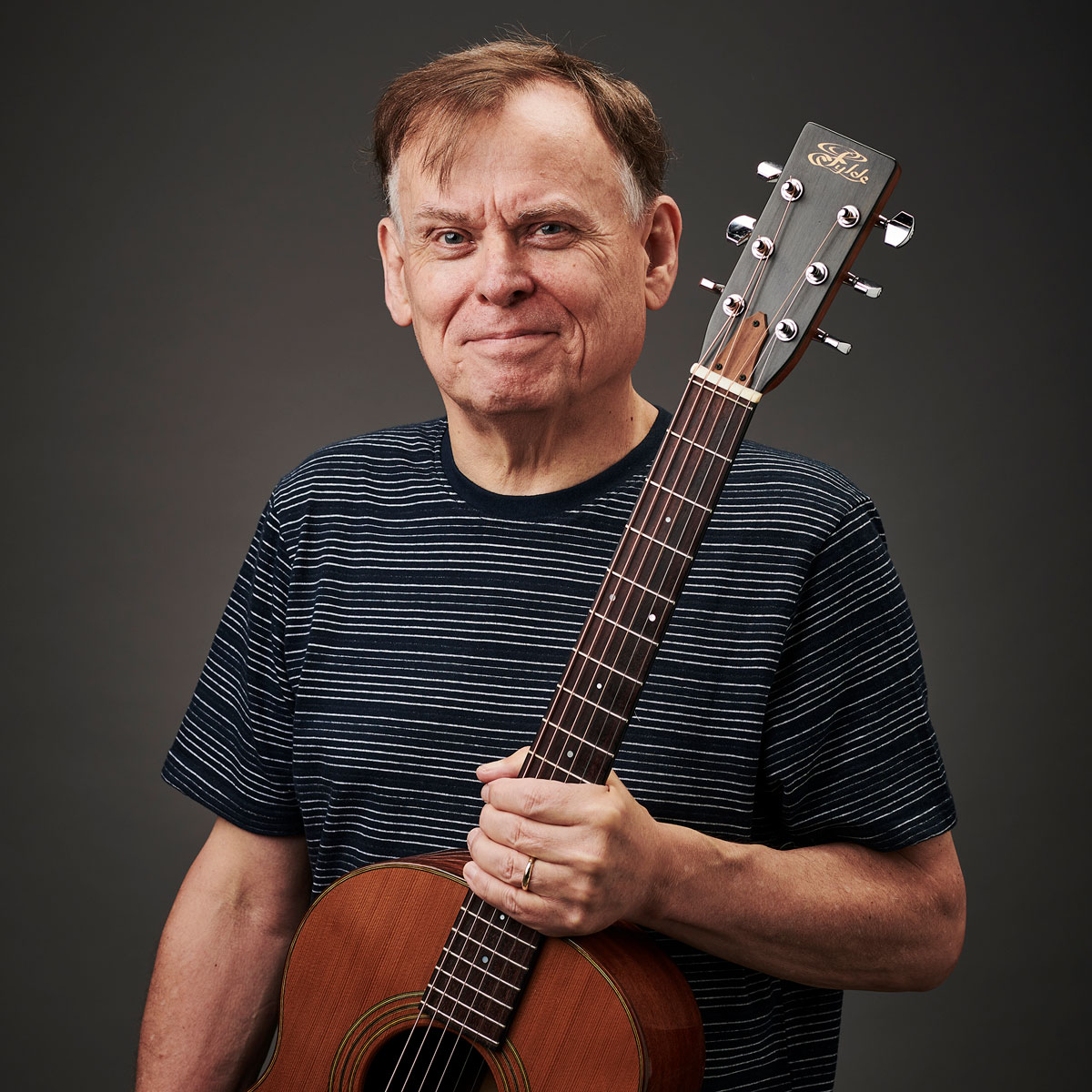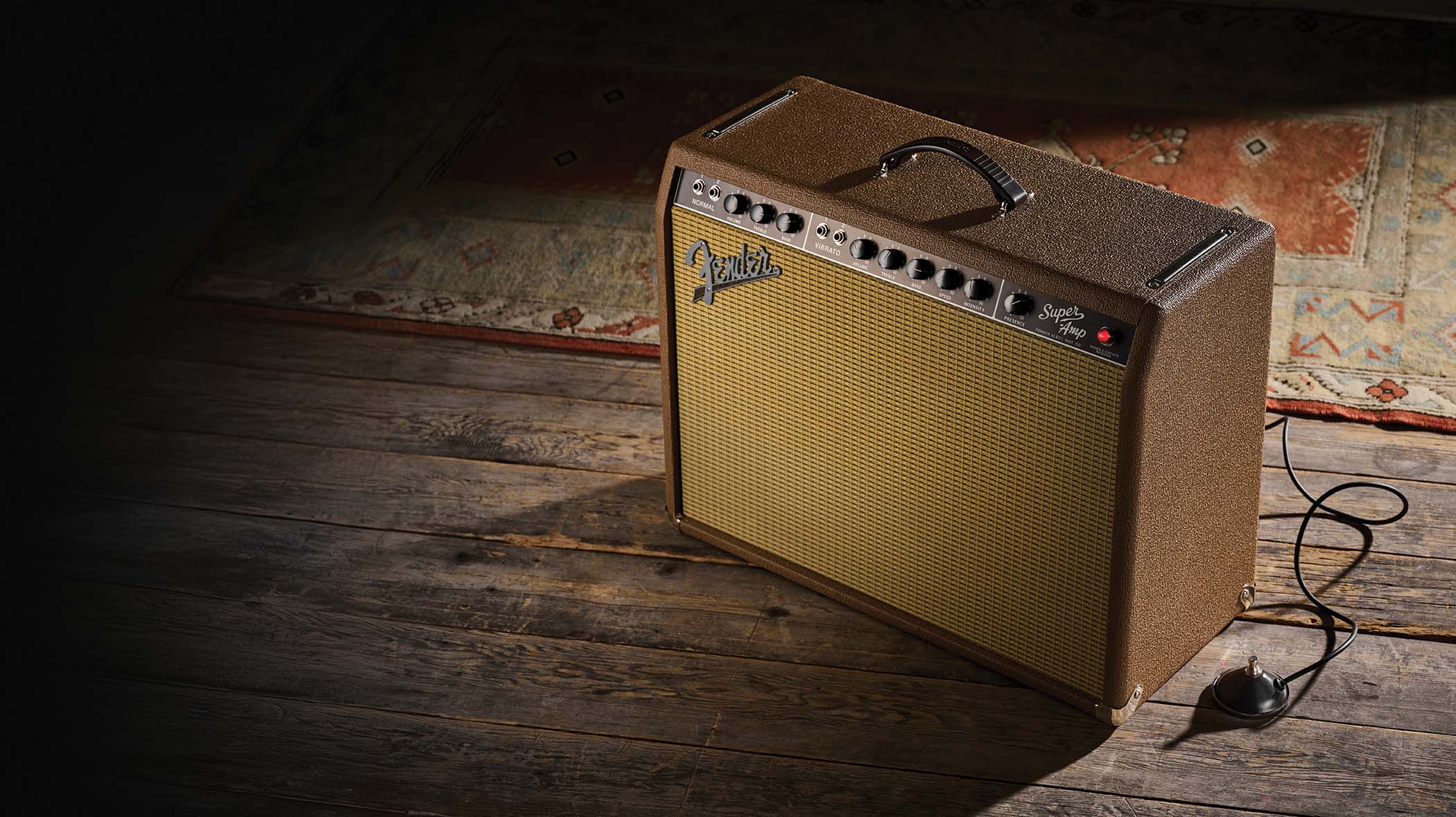Fairport Convention’s Simon Nicol looks back on 55 years of the band that transformed British music
Nicol reflects on a guitar journey that went on to change the country's musical landscape, writing new songs that sounded like they had been recovered from the century before
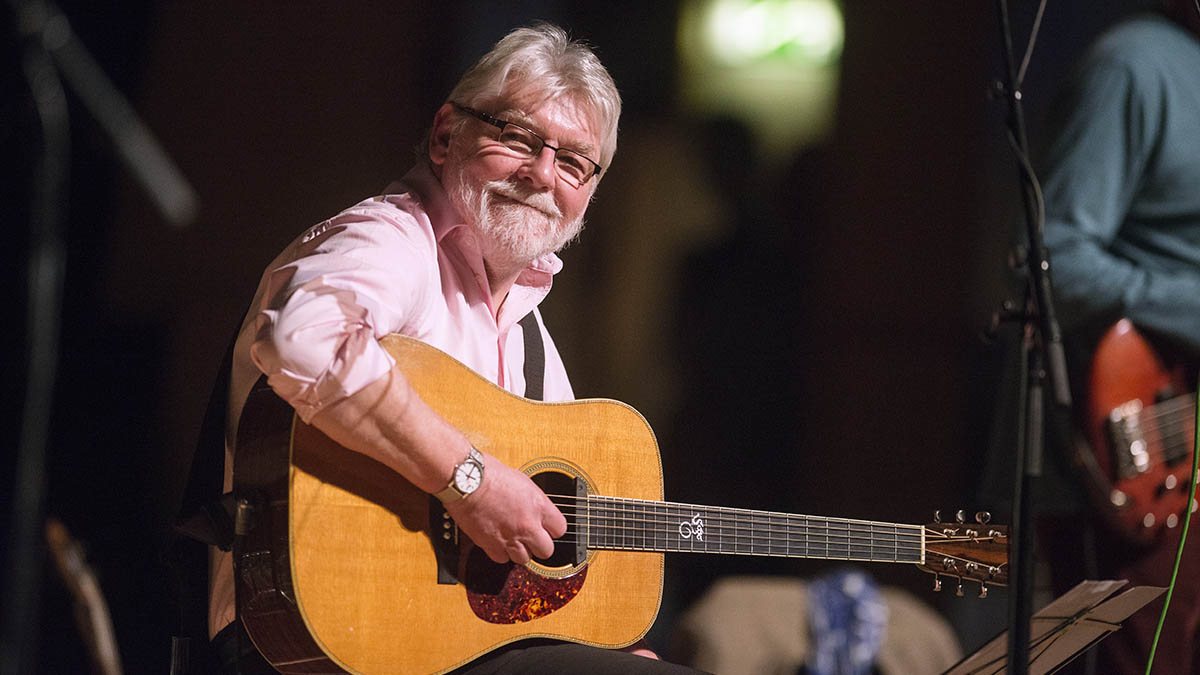
This year sees the 55th anniversary of Fairport Convention, prime architects of the UK’s folk-rock movement and a band that has left an indelible mark on British music.
Here, founder member and guitarist Simon Nicol traces the band’s origins from the perspective of his own musical journey…
Early Conventions
“There are many things in favour of the guitar. When you’re a young chap it’s portability, the fact you can have it around when you’re at the beginning of the learning curve. Somebody can show you exactly what they’re doing and you can try it yourself just by passing it over. That doesn’t work with a piano.
“When you’re a young lad growing up in the 60s, the guitar was kind of a token. You were part of some social experiment, but it seemed like a young person’s instrument in the way that the violin or so forth couldn’t possibly be. It was a cool thing to have.”
Connecting Up
“A number of my peer group had guitars and we would play Beatles songs and the hits from the Mersey bands, and it was all done by ear. I didn’t form a band or join a band until I got my way into Ashley Hutchings’ little black book.
“I knew Ashley because he’s about five years older than me and I came across him initially at the youth club in Muswell Hill, where he would occasionally turn up on a Friday night with a band.
“And he was clearly the leader as well as the bass player as he’d frequently be there with a different set of musicians playing a different kind of music the next week.”
All the latest guitar news, interviews, lessons, reviews, deals and more, direct to your inbox!
Summertime Dues
“I’d saved up enough money from a summer job to buy myself an acoustic 12-string guitar because I just really liked the look of it. I thought it was a cool thing to have. I couldn’t play it in anything more than a basic rudimentary fashion.
“But I took it with me to the youth club, some nights, and so forth, and Ashley noticed it and he didn’t have anybody in his circle with a 12-string. So that was my USP. His little black book was legendary and I found myself in it, and before long I found myself alongside him playing jug band music.”
Humble Beginnings
“Richard Thompson was in the little black book, too. That’s how Fairport started, really. The three of us became a little sub core at the centre of a number of different musical adventures and we took the name Fairport Convention and became professionals. So it all happened by accident, really: tiny steps, little, little choices, you make little forks in the road.
“I was accompanying Richard, really, rather than trying to muscle my way to the front of the stage. I got a lot of pleasure from being part of this background, which provided a platform for the songs and for his virtuosity to shine.”
In The Clubs
“In the early days of Fairport we were interested in singer-songwriter and American rock music more than anything else. We’d all been exposed individually to folk music as part of our musical education background. In those days in North London, the three of us had overlapping manors.
“All of the Victorian pubs in those days had back rooms, or function rooms upstairs over the bars, where music would happen two or three nights a week. There’d be live music all over the place and it would have many forms. And they’d be quite often organised along club lines; you join for five shillings and you go and see a band for two or three bob.”
Mixing It Up
“Because of all these venues, there were many, many bands to fill the spaces. The same pub would have perhaps two or three clubs running on different nights, and they’d have utterly different musical approaches. There’d be a folk club one night, a trad jazz club the next night, and there’d be a rock band or a blues outfit playing the third night.
“There was absolutely nothing unusual about this. You’d see all sorts of different music and I was just there as a sponge. I got to see lots of types of music and some of it wormed its way into my consciousness, so when we commenced moving into the incorporation of traditional songs it wasn’t a totally alien form of music. I’d been exposed to it, even though I hadn’t played it.”
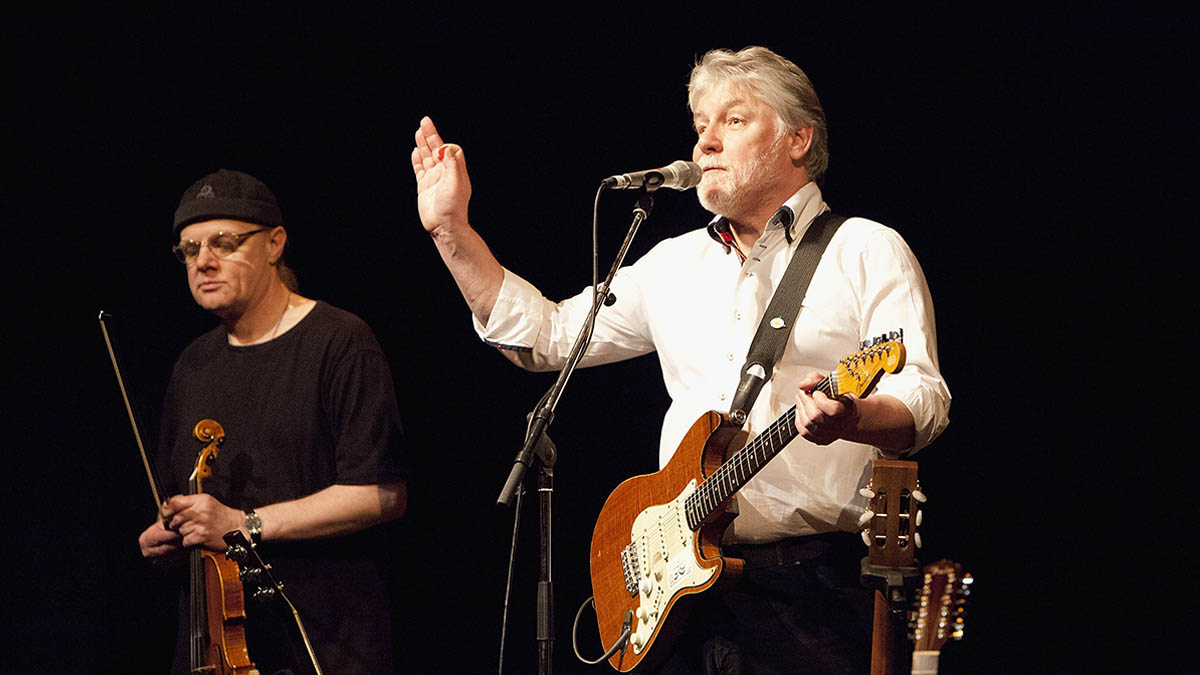
Song Lines
“I knew some Scottish ballads, but I didn’t know I knew them. I’d heard them and I’d heard their American interpretations. A lot of singer-songwriters came over here and showed what one man and a guitar could do.
“I remember seeing Tom Paxton when I was about 15 and thinking, ‘Oh, that’s good. This guy’s writing really perfect little story songs. And he’s accompanying them beautifully, and it’s all very accessible and original.’ I thought, ‘This is very nice.’”
Seminal Album
“When Sandy [Denny] joined the band [in 1968] after incarnation one of Fairport, we didn’t have very much time to create a new repertoire, so we kind of met in the middle. She learned some of our existing repertoire, but we wanted to save her the onerous task of having to learn the whole two hours.
“She was able to bring in the same songs that she had been playing the previous week solo in a folk club, perching on a stool with a guitar of her own. And we would just find a way to accompany her performance. That, I suppose, was the beginning of the osmosis of folk music into the repertoire in its recognised form. Things really began to come together significantly with Liege & Lief [1969], I suppose.”
On A Mission
“When we got together that summer of 1969 to plan the record and to get to know each other, we had to create an identity for the new line-up. And that is why Liege… was important on those different levels.
“Because as well as satisfying the need to create, we perceived that our mission statement was to create a record that included both traditional songs performed by a rock band and, at the same time, create new songs that sounded as if they could have been hundreds of years old. And to blur the lines between the two. That was the goal towards which we were moving.”
Band Together
“Dave Swarbrick, who we knew just in passing, was a big star in the world of folk and he was obviously an astonishingly gifted musician. He knew his way around not just his instrument but the whole song cycle, the whole musical genre we were just beginning to dabble in. But also Dave Mattacks, who knew nobody before the audition, and didn’t know anything about our previous history.
“We all had to get to know each other and so it was a crucible of focus. And, because we had this objective, it was very different from the way an album had been made up to that point, where you just sort of found songs that you could share and find your own musical way in. They would just move onto the next song, and there wasn’t necessarily a connection between them. With Liege & Lief, there was a purpose and a focus.”
All Change
“We’d come down to a four-piece after Sandy and Ashley [Hutchings] left and we became a five-piece with Dave Pegg onboard. After a year or a year and a half, whatever it was, Richard decided he wanted to escape the chains of Fairport and free himself up to become a songwriter.
“He’d already written songs, obviously, like Meet On The Ledge, which was on the second album, so he wasn’t really venturing into completely uncharted territory, but he really wanted to focus on that.
“He stopped coming to gigs, but he still lived in the house with us, and we were all still a little community. But he needed time to focus on his own personal development.”
New Moves
“I found myself on an American tour thinking, ‘Do I really want to do this anymore?’ You must remember that I was 20 at that point. Effectively, I’d been working with Ashley on and off since I was 14 or so. So I’d been in the band for, like, half my life by the time I was 21. So I thought, ‘Maybe I need to take some time out, maybe I need to do something different.’
“I didn’t want to leave music, but I just felt I’d been on this particular treadmill a bit too long. So, without really having a plan, I told the others. I didn’t leave right there on that night because it would have been a bit inconvenient as we were supporting Traffic on an American tour. There was no way I could get home from Texas, anyway. Everybody was fine about it. It wasn’t as if I was the first person to jump ship…”
Farewell, Farewell
“So I said goodbye in Dublin on 4 December 1971. But they were mates. We knew each other closer than family. Peggy and Swarb were closer than my own brothers and sisters, really.
“The next thing I knew was Ashley got in touch because while Fairport had been reinventing itself in his absence, of course, he’d gone straight from Fairport to create Steeleye Span.
“They’d made a couple of great albums and he got a lot of his lust for really digging deep into the proper folk tradition. With Steeleye he had found a level, which he couldn’t have found in Fairport any other way. So he called me up and proposed that we form a new band, which was the beginning of The Albion Band.”
Rover’s Return
“It was a bit tumultuous in my four-year sabbatical, there were a lot of changes from the Rosie record through to Rising For The Moon. During that period it was basically Swarb and Peggy that were keeping the band going.
“I didn’t lose touch with the band, and Swarb, Peggy and myself even had a little acoustic trio on the QT, just doing gigs for cash and having fun. So when the band was making an album, which eventually came out as Gottle O’Geer in 1976, I was still so close with them that I got recruited to engineer that record – and the next thing I knew, I was on the other side of the glass as well, playing on a couple of tracks.”
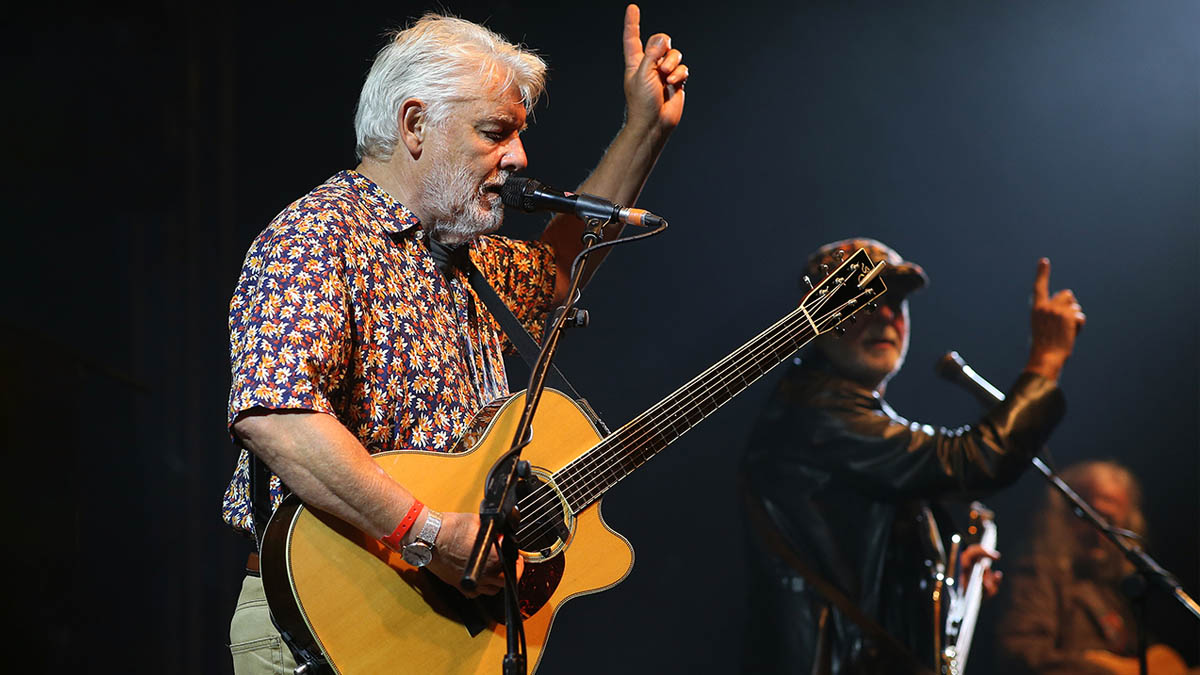
Lasting Legacy
“Fairport is my life. It’s more than a job, it’s more than a career; it’s my life. My family home was called Fairport, which is why the band took its name. So born in Fairport, and the way things are going, I’m going to die here, too.
“I couldn’t have possibly dreamed that we would still be a viable working act 55 years on, and that we’re not our own tribute act. That’s always been my fear. It’s always about the next album, it’s about stirring the pot.
“We’ve got a big repertoire, let’s face it, and not all of those songs are going to be accessible, nor should all of them be made available. Some of them are well worth baring. But, you know, it’s great to have a history. It’s fantastic to have this long repertoire.”
- Shuffle And Go is out now via Matty Grooves.
With over 30 years’ experience writing for guitar magazines, including at one time occupying the role of editor for Guitarist and Guitar Techniques, David is also the best-selling author of a number of guitar books for Sanctuary Publishing, Music Sales, Mel Bay and Hal Leonard. As a player he has performed with blues sax legend Dick Heckstall-Smith, played rock ’n’ roll in Marty Wilde’s band, duetted with Martin Taylor and taken part in charity gigs backing Gary Moore, Bernie Marsden and Robbie McIntosh, among others. An avid composer of acoustic guitar instrumentals, he has released two acclaimed albums, Nocturnal and Arboretum.
